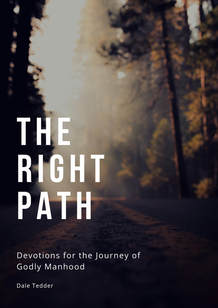|
Everyone Is A Theologian
Godly men know that, for good or ill, everyone is a theologian. We each think thoughts and imagine ideas about God, even if those thoughts and ideas are that God does not exist. Some have plumbed the depths of theology while others have only skimmed along the surface. Regardless of one's efforts or abilities, thinking theologically is unavoidable. Far from being dry, boring, and stale, theology ought to be spirit-renewing, soul-forming, and life-transforming. It isn't (or, shouldn't) be merely for academic and intellectual pursuits, but instead, to draw us closer to God and conform us more to his likeness. Thinking more intentionally about God should lead us to know him better and love him more. Indeed, the more we learn of God's magnificence, the more worship, joy, and gratitude ought to break out among us. In fact, it will become impossible to contain our pleasure brought forth from our discoveries of the person and work of God. Soli Deo Gloria The first question of the Westminster Shorter Catechism asks: "What is the chief end of man?" The answer: "Man's chief end is to glorify God, and to enjoy him forever." To increasingly know ("about" and "relationally") and love God leads men pursuing godliness to seek their Lord's glory in all aspects of their lives. They shift from self-centered to God-centered lives in which every sphere is integrated because each is connected to and empowered by God, who is at the center. And each part exists to bring God the glory due his name. Studying textbooks about God alone won't accomplish all of this. But pursuing God more intentionally will move us in the right direction of knowing, loving, following, and trusting God, as well as seeking and submitting to his will. This is theology at its best. Brothers, is God your chief pursuit and greatest desire? Soli Deo Gloria, Dale
0 Comments
|
Click the images above to learn more about my books for men.
Archives
April 2019
Categories
All
|



 RSS Feed
RSS Feed
